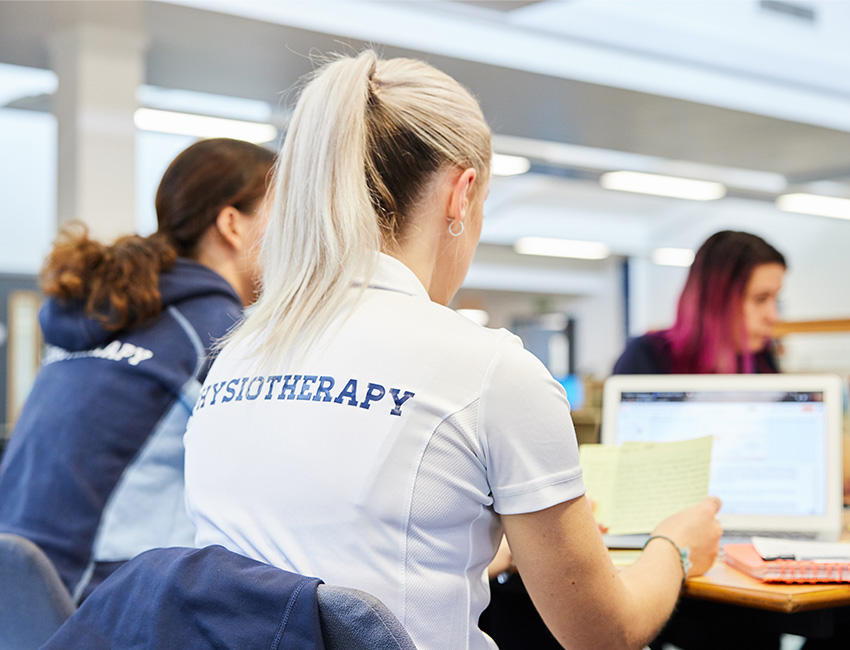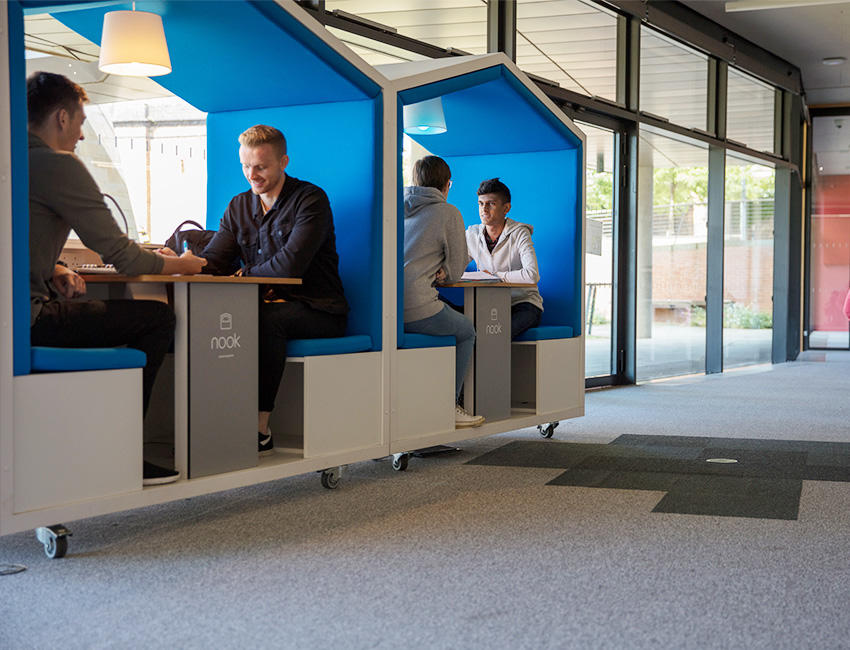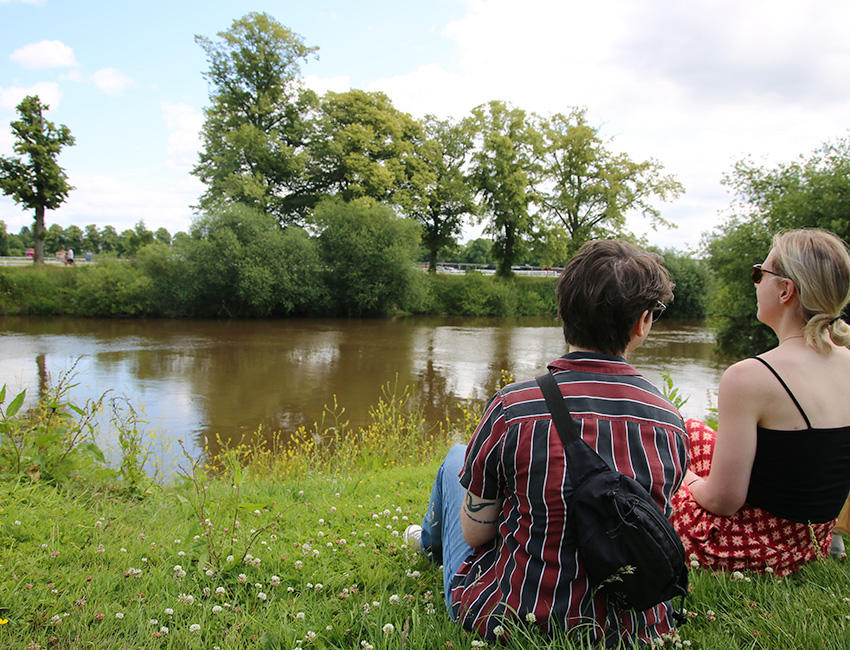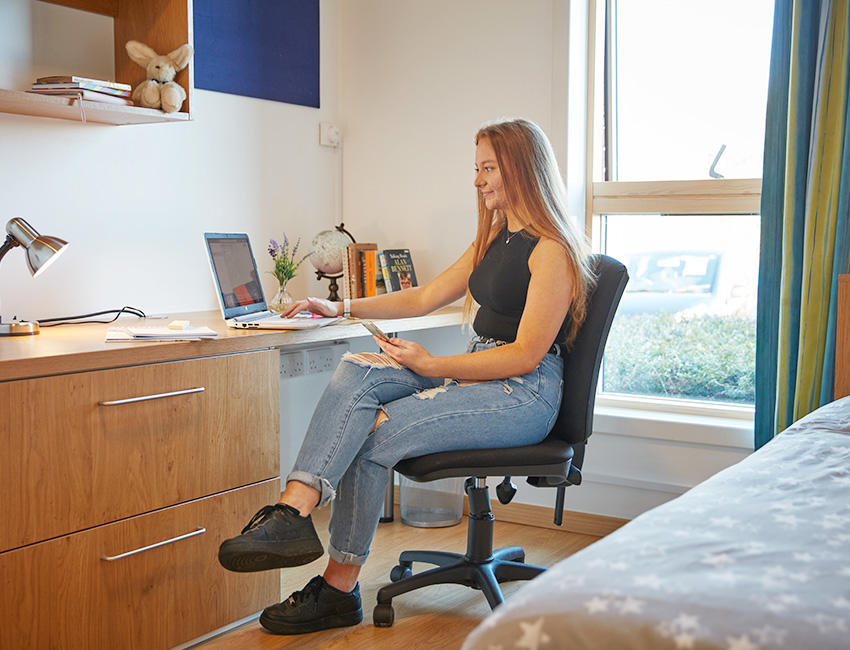Studying as a commuter student
Top tips for making the most of your commute
-
Prepare for your week by taking some time to make a to-do list, making sure you have a balance of university, home, and relaxing/fun to keep you feeling on-top of things. You can also speak to your Personal Academic Tutor for advice on managing your university work. The Student Life team will be able to offer support if you’re struggling to balance your commitments.

-
To help you pack light, we have computers and loanable laptops available for you to use accross our range of study spaces. There are also free water refill stations across all campuses, and microwaves on St John's Campus, which you are welcome to use to reheat a packed lunch. There are indoor and outdoor spaces for you to eat, as well as our restaurant on St. John's Campus, the Campus Shop, and a range of cafes across all our campuses. We even have lockers available on St. Johns Campus where you can store anything you need for commuting so you don’t need to carry it throughout the day.
-
Listening to podcasts and audiobooks can be a great way to study on the go. You may find something related to your course/research area on an audiobook or podcast platform, or if you’d like to hear texts from your resource list, you can do this with many of the ebooks we have access to.
or
-
Use the time to relax by reading or listening to a book, enjoy your favourite music, learn a new language or try a mindfulness app. Take advantage of the time away from campus and home by taking some time for yourself, helping you to either start or end the day feeling good about yourself.
Tips for making the most of your day
If you find you have large gaps between your lectures, there are plenty of things to do!
Study spaces and support

Peirson Study & Guidance Centre on St John's Campus is open 24 hours and has both downstairs and upstairs spaces to study, plus rooms for silent study.
The Hive is open every day between 8am and 10pm and is constantly staffed, so there will always be someone on hand to help you. There are 3 floors of study spaces, plus thousands of print books to support your studies.
There are also study spaces in Jenny Lind, Charles Hastings, Elizabeth Garrett Anderson, and the Duke’s building during the day.
You could use these spaces for independent study, or you could organise a group study session with your course mates. Group study is a great way to check in, learn from, and support each other.
Regardless of where you’re studying, you can access all our online resources from the Library Services website, which includes a live chat service where you can speak with a librarian instantly. You can book onto study skills live sessions to learn about referencing and searching. The library also provides bookable one-to-one tutorials with a librarian for further support with your research.
For writing advice, the Centre for Academic English are on-site to provide support in understanding your assignments and developing your writing style. We also have our Writers in Residence who can offer support in expressing your ideas and reaching higher grades in your assignments.
At the start of your course, you will also be assigned a Personal Academic Tutor who you can meet with at any time to discuss your assignments, progress and career prospects, as well as being able to signpost you to support for any other concerns you may have.
On occasions, there are lunchtime and evening seminars you can attend, which showcase staff and PhD student research. Keep an eye on your student email as these events will be emailed to you by course leaders.
Taking a break

Downtime is important as a university student. You could spend this time having a catch-up with a friend or family member to stay connected with your support system, and unwind with some light conversation.
If you need to stretch your legs between lectures, you could enjoy a walk along the University Mile, or take advantage of our fully equipped and inclusive Riverside Fitness Suite, or enjoy one of the many walks in the area. You could also hire one of our Beryl bikes and enjoy a bike ride.
If food and drink is your idea of a break, you could spend some time in one of our campus cafes. If you’d rather spend some time in the city centre, there are numerous chain and independent cafes and restaurants to choose from, covering a wide range of cuisines.
If you’re spending some time in Worcester city centre, you could also enjoy some retail therapy, explore the historic quarter or unwind with a game of crazy golf at Mulligans, bowling in St Johns or axe throwing at Axe Junkies.
Don’t forget you can enjoy these activities by yourself or invite some course mates along!
Tips for studying at home
Here are our top tips for feeling on top of your university work and wellbeing when working at home.
Setting boundaries
It’s a good idea to have a chat with those you live with and explain what support you need from them. You could discuss or think about things like:
- How much time do you want to spend with others, and how much time you want to save for yourself?
- How would you like to be supported if you start feeling overwhelmed with balancing uni work and household work?
- What space would you like to keep as your study space?
Setting up your boundaries with those you live with will help you balance your uni and home life, whilst making sure you can be there for you household, and they can be there to support you.
Maybe agree a rule with yourself where you work on campus and focus on yourself and household responsibilities when you're at home.
How to choose your study space.

Make sure to pick a spot that's quiet and away from distractions like the TV and other people. You’ll need to make sure you have a desk space which fits your laptop, any resources you need like a notepad, and room for a drink and a snack. The study space may also need room for your books, stationery and charging points, without feeling too cluttered.
Make sure you also have a comfortable chair that positions you at a good height at your desk to avoid neck strain.
Looking after yourself
It can be easy to put pressure on yourself to be constantly productive with studying and working on your assignments, so it’s important to remember to look after your well-being.
Self-compassion and being forgiving to yourself is key in reducing stress and negative emotions. Allow yourself breaks and relaxation so you can come back to your work feeling energised and motivated, instead of constantly pushing yourself and burning out.

Part of this is making time to meet up or catch up with friends and family without talking about university work. Giving yourself and your mind a break will help boost your mood and get you back into the flow of working on your assignments.
Don’t forget you have access to various university services who are there to support you throughout your course.
Firstpoint is your first point of contact for accessing advice and support on wellbeing, mental health and counselling, and disability and dyslexia. You can also receive money advice, career and employability support, chaplaincy, and studying abroad advice.